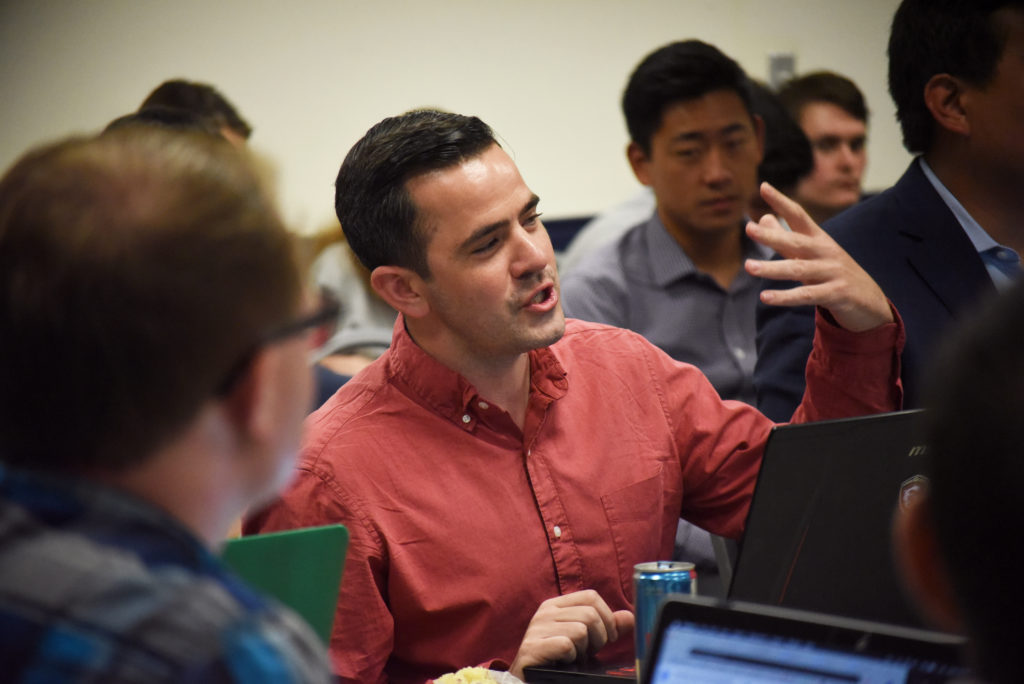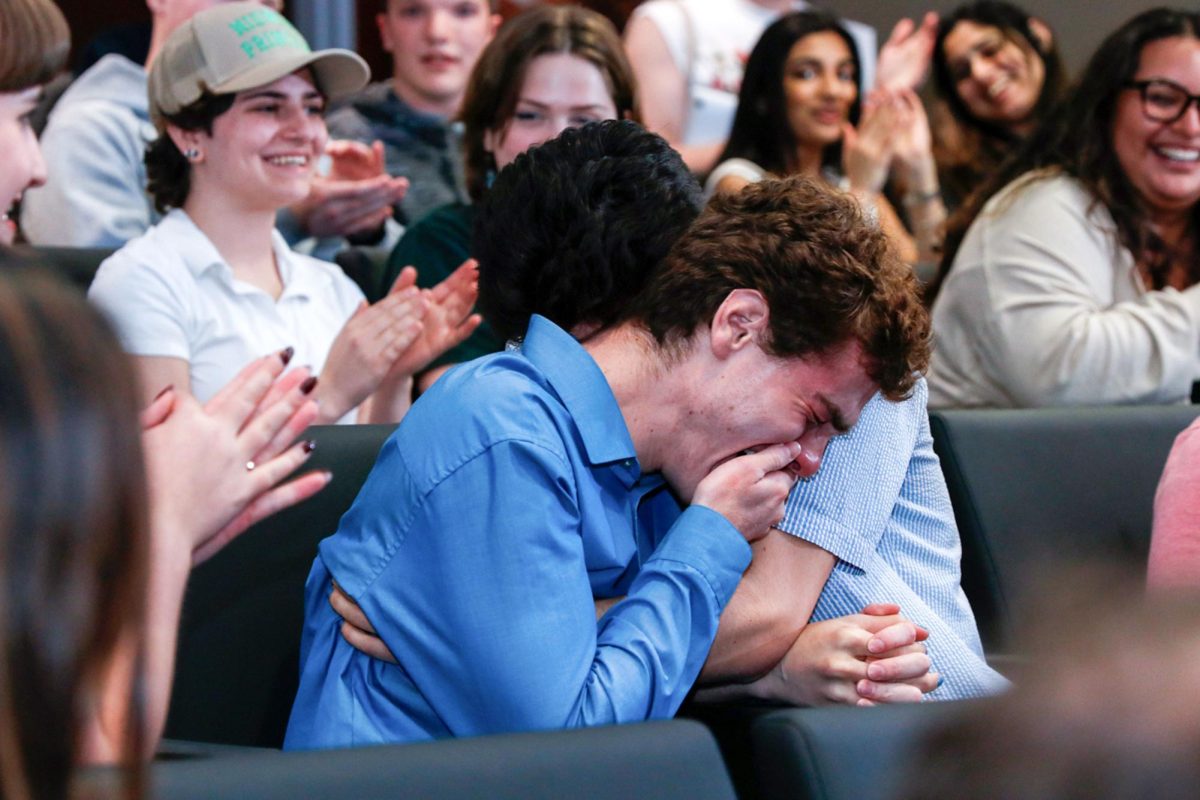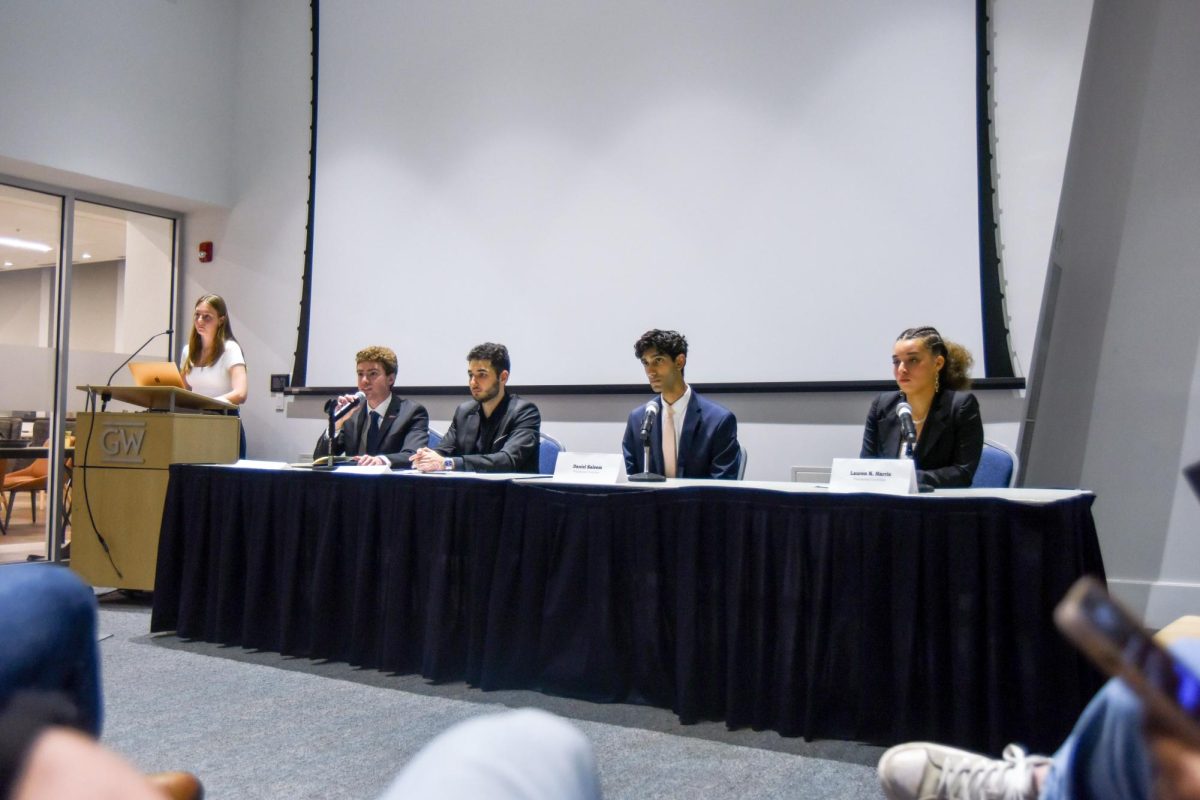A Student Association senator is suing the SA for allegedly violating the body’s legislative process.
SA Sen. Jake Corsi, CCAS-G, filed a complaint with the Student Court Monday alleging that the SA violated its bylaws and constitution by allowing members of the executive branch to serve on a special senate committee that will propose changes to the body’s constitution. The complaint states that the bill that created the special committee violates the “separation of powers” clause in the bylaws and allowing executive members to vote in the committee “infringes” on the senate’s independence.
“Regardless of what the architect of the bill or the would-be monarchs say, a special committee is not some mailable, catch-all device, that can be used to engine this Frankenstein monster,” the complaint, which was obtained by The Hatchet, states.
Corsi is asking the court to rescind voting powers from three executive members involved with the committee. SA President SJ Matthews, SA Executive Vice President Amy Martin and SA Vice President for Judicial and Legislative Affairs Logan Basch will serve on the committee.
Corsi, who is asking for an expedited review by the Court, argues that the special committee functions similarly to standing committees like the academic or student life committees in that they are comprised of only senators. The SA’s constitution categorizes senate membership as senators “elected and those appointed by the senate.”
“Thus, in light of the definitions provided by Article XI, the plaintiff argues that any non-senators possessing voting rights on a senate committee, be it standing or special, as unlawful,” the complaint states.
Corsi said in an interview last week that he expressed concerns last month about the committee during a senate meeting, but his comments did not “land well” among other senate members. He shared his concerns with executive committee members last week and asked the SA to separate the committee into two – one comprised of senators and another that includes executive members, he said.
“I don’t want to have to make the Student Court alter their lives around finals to do this, but I really think we’re left without a different choice because it doesn’t seem like they’re willing to meet senate concerns halfway,” he said. “It’s more of like, ‘This is the way we’re doing, if you don’t like it, kick rocks,’” he said.
Matthews, Martin and Basch said in a joint text message last week that they want to ensure the committee’s suggestions for drafting changes to the constitution are sufficient “guiding structures” for the SA’s three different branches of government.
“The reason we are even attempting a constitutional rewrite is because we want to improve the functions of our entire organization,” they wrote. “To not include the executive in this process, we feel would make it harder to achieve that goal.”
Basch said the committee was designed to allow SA members to informally complete a “bulk” of the group’s work over winter break. Committee members will continue drafting changes to the constitution over the next few weeks despite Corsi’s complaint because members will not hold official meetings until the spring, he said.
“No official meetings or committee votes will be held until next spring, so this complaint will not stop us from getting a bulk of the much-needed work done,” he said in an email. “Once the court indicates next steps, we will proceed in compliance.”
Any proposed rewrites to the constitution are voted on by the senate and, if passed, by the student body in a referendum, which means the committee cannot decide whether the changes are adopted, Basch said. Committee members are mainly involved with streamlining the constitution revision process, he said.
“It is merely a means of internal organization so that when the time comes to propose a rewrite to the full senate, we have one draft with everyone’s ideas instead of several disjointed drafts that would make the whole process more confusing,” he said.
SA Chief Court Justice Wayne Arminavage could not be available for comment.








